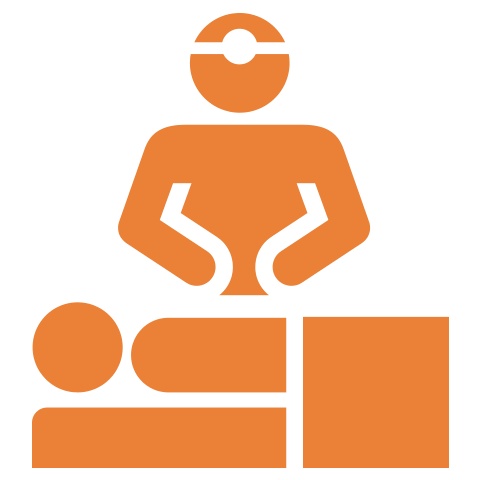

Dr. Shiv Chopra

 Senior Consultant - General Surgery, Moolchand General and Advanced Laparoscopic Surgery Institute, Robotic Surgeon
Senior Consultant - General Surgery, Moolchand General and Advanced Laparoscopic Surgery Institute, Robotic Surgeon| Mon | Tue | Wed | Thu | Fri | Sat | Sun | |
| 09 am-02 pm | |||||||
| 09 am-02 pm | |||||||
| 09 am-02 pm | |||||||
| 09 am-02 pm | |||||||
| 09 am-02 pm | |||||||
| 09 am-02 pm |
| Mon | Tue | Wed | Thu | Fri | Sat | Sun |
About me
With my passion to treat any case be it complicated or easy, I find immense internal satisfaction in enabling people return to their healthier selves and happier lives. It is a unique mix of knowledge, humanitarian values and medical ethics that forms the basis and foundation of my practice.
Over 12+ years, I have been part of Moolchand and have treated various patients competently and diligently. I work with a multi-disciplinary team of doctors to provide the best treatment to my patients. I routinely perform minimally invasive procedures like laparoscopic adjustable gastric band, single-incision laparoscopic surgery (SILS), gastrectomy, aspiration of liver abscess, and more. My areas of interest and expertise are gastroenterology, laparoscopy and bariatric surgery.
I am member of editorial boards of various Indian and international journals. I have also trained nurses and paramedical staff at various medical institutions including Moolchand.
Medical expertise
My education and training
| MS | Surgery, MAMC, New Delhi, India (1996) |
| MBBS | MAMC, New Delhi, India (1992) |
Others
|
My publications and papers
- “Case report: Myxoid Liposarcoma of the Skin-Rare Case with Multifocal Presentation”, Journal of Clinical and Experimental Dermatology Research (2015)
- “Case report: Group ‘G’ B-Hemolytic Streptococcus a New Important Causative Organism of Localised Intra-Abdominal Abscess”, Journal of Clinical Case Reports (2013)
- “Case report: Role of Hyperbaric Oxygen Therapy in Management of Complicated Case of Fournier Gangrene to Improve Patient Outcome”, Journal of Clinical Case Reports (2012)
- “Solitary Thyroid Module Treatment Protocol” article published in Indian Journal of Endocrinology and Metabolism (1998)
- Thesis and research work: “A Study on Turp Syndrome” (1996)
My awards and accomplishments
- Chairperson and expert speaker for “End Stage Renal Diseases with Hypertension, NIDDM and GI Bleeding”, SLS Multispecialty Summit (2017)
- Chaired seminar on “New Frontiers in Surgery: Robotics”, Max Healthcare (2016)
- Chaired seminar on “Acute Abdomen Clinical Approach”, AIIMS, New Delhi (2014)
- Chaired conference on “Hernia: New Controversies”, Surgery Update annual conference, Mumbai (2005)
- Expert speaker on “GI Bleeding” at the Association of Surgeons of India’s annual conference at RML, New Delhi (2011)
- Instructor, advanced laparoscopic surgery trainings at Moolchand (since 2008)
- Delivered lectures on practicalities of surgery to train nurses and paramedical staff, trained DNBs at Moolchand Medcity (2008-2012)
- Clinical attache at South Shield Hospital, UK, for advanced gastrointestinal surgeries (2002)
- Visiting faculty at HAHA, Majeedia Hospital, Jamia Hamdard, New Delhi (2002-2010)
What I'd like to tell my patients
What it means to be a “good doctor”? I often ask this question to myself!
I believe that a good doctor strives for continuous improvement, implements quality control system and eliminates any scope of medical negligence. Today, a lot of people meet doctors with apprehensions about being prescribed a surgery that might not be necessary. Many times, poor communication by their doctor makes the patients fearful of being misguided. Many of them go window shopping to find the right doctor.
My only advice to all my patients is that once you have decided on your doctor, then be positive and trust him. Trust in the doctor–patient relationship is considered to be the first prerequisite for good medical care and it goes a long way in helping patients heal. Trust also affects important behaviours and attitudes of patients, like their willingness to seek care, reveal sensitive information, submit to treatment and comply with the recommended therapy.
When a patient walks in my office, I engage in friendly chitchat with him or her to make the patient feel comfortable. Then, we move into the physical exam and diagnostic findings. A little empathy goes a long way in comprehending the patient’s condition correctly. I treat my patients the way I would want my own family members or myself to be treated. This helps me engage with my patients’ situation more closely.





 Senior Consultant Unit Head Surgical Oncology and Robotic Surgury
Senior Consultant Unit Head Surgical Oncology and Robotic Surgury  Consultant Surgical Oncology and Minimal Access Surgery
Consultant Surgical Oncology and Minimal Access Surgery
Mujhe fistula ki wajah se problem thi. Dr. Shiv Chopra ne operation safe aur simple tarike se kiya. Ab pain nahi hai aur recovery fast rahi.